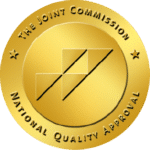Introduction
Depression and chronic anxiety is a serious condition that affects 10s of millions of people a year. Depression and anxiety can range from being a drag on your mood and daily life all the way to being debilitating and affecting home, family, and work life. Some people even feel the need to end their lives.
Most of the time, convectional treatment from most Americans and Western medicine doctors and psychiatrists suggest that using pharmaceuticals with the range of known and unknown side effects. And how can we blame them? This is how they are trained. As the saying goes “When the only tool you have is a hammer, everything becomes a nail.” And yes, they do work for many people, and we suggest that you do try them.
However, for some people, pharmaceuticals do not work. There are alternatives to regular medicine for depression. In this blog, we will talk about the alternatives and the benefits and negatives of each.
Transcranial Magnetic Stimulation (TMS)
Transcranial Magnetic Stimulation (TMS) is a non-invasive treatment that uses magnetic pulses to stimulate nerve cells in the brain. It’s used to treat depression, obsessive compulsive disorder, and migraine.
A TMS device is placed on your scalp. Then it sends out magnetic waves that pass through your skull and into an area of your brain called the frontal lobe. This causes electrical activity that stimulates nerve cells in this region of your brain–and may help relieve symptoms of depression or anxiety
Ketamine
Ketamine is a medication that’s used to treat depression. It’s a medicine that has been used since 1973 and can be administered in a doctor’s office.
Ketamine has been shown to help with suicidal thoughts and feelings, as well as symptoms like insomnia and anxiety–all things that can accompany depression. It works quickly too: within hours after receiving it, patients report feeling symptom relief that same day. Combined with talk therapy.
Psilocybin
Psilocybin is a psychadelic drug that can be taken by eating mushrooms. It causes the brain to release serotonin, dopamine and other neurotransmitters that help regulate mood.
It’s important to note that psilocybin is not an antidepressant; instead, it affects the neural circuits associated with depression. This means that if you have a history of schizophrenia or bipolar disorder and take psilocybin on top of your current medication regimen (or if you’re taking any other drugs), there’s risk that you could experience psychosis as well as mania or hypomania — both dangerous conditions where your thinking becomes disordered and out-of-control.
That said, research into using psilocybin for depression has shown promising results thus far: One study showed significant reductions in depressive symptoms after just two doses over two weeks.* Another study found significant improvement among patients who were resistant to conventional treatment options such as antidepressants.*
Eye Movement Desensitization and Reprocessing (EMDR)
Eye Movement Desensitization and Reprocessing (EMDR) is a form of psychotherapy that uses eye movements to help the patient process traumatic memories. It’s been shown to be an effective treatment for PTSD, anxiety disorders, and even substance abuse issues. This doesn’t mean it will cure you or make your depression go away permanently–but it can help manage symptoms so that you feel better overall.
Hypnotherapy, Meditation, Qigong
- Hypnotherapy
- Meditation
- Qigong
These three alternative treatments are all forms of self-healing, and they can be used to reduce stress and treat depression.
There are many ways to treat depression.
There are many ways to treat depression, and what works for one person may not be the best treatment for another. The most commonly used treatment for depression is medication. Medication can be combined with psychotherapy, which involves talking about your feelings and experiences with a therapist. Other options include mind-body practices like yoga or meditation; alternative therapies such as acupuncture; light therapy (exposure to bright light); exercise; diet changes; sleeping better (getting enough sleep at night); spiritual practices like prayer or meditation; spending time with friends and family members who care about you
Conclusion
I hope that this article has given you some insight into some alternative treatments for depression. When you have tried pharmaceuticals and traditional medicine, there are many different options available, and it’s important to remember that no one strategy is going to work for everyone. The key is finding the right combination of approaches and sticking with them until they do work.
If you have any questions about any these treatments, please give us a call anytime at 310-571-5957 or email at info@clearmindtreatment.com









